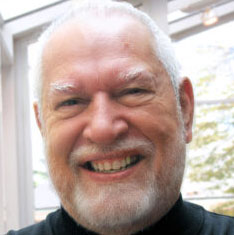TWiV discusses presence of infectious avian H5N1 influenza virus in raw milk from infected dairy cows. dynamics of measles immunity from birth and following vaccination, and a mechanism for cis-preferential reverse transcription revealed by deep mutational scanning of hepatitis B virus.
TWiV reviews influenza H5N1 in North American cows and in birds throughout New York City, polio health emergency extended, ChatGPT to control vaccine hesitancy, increasing viral hepatitis worldwide, dengue public health alert in Puerto Rico, cherry trees drowning in Washington DC, death of iron lung Paul, origin and dispersal history of hepatitis B virus in Eastern Eurasia, and antibody-independent protection against heterologous SARS-CoV-2 challenge.
TWiV discusses genetic evidence of susceptible wildlife in SARS-CoV-2 positive samples at the Huanan Wholesale Seafood Market, polio cases in African linked to a new polio vaccine that was designed to not cause the disease, and structural conservation of hepatitis B virus capsid proteins over millions of years despite a shift from a naked to an enveloped capsid.
The meteorologicomaniacs discuss the COVID-19 pandemic global death toll, effectiveness of vaccines against the delta variant, and how analysis of ancient viral DNA reveals that two pathogenic human viruses were brought into Mexico during the transatlantic slave trade.
Vincent and Erling resume their discussion of virology Nobel Prizes, focusing on awards for research on tumor viruses, bacteriophages, virus structure, reverse transcriptase, hepatitis B virus, HIV-1, human papillomaviruses and much more.
From the Karolinska Institute in Stockholm, Vincent speaks with Niklas Björkström, Ali Mirazimi, and Matti Sällberg about their work on the impact of chronic hepatitis C virus infection on NK cells, Crimean-Congo hemorrhagic fever virus vaccines, and immunotherapy to block entry of hepatitis B and D viruses.
Team TWiV reveals DNA polymerases that do not require a primer, and packaging of hepatitis delta virus by the envelope glycoproteins of diverse viruses.
The TWiVosophers review the Chinese plasma virome revealed by non-invasive prenatal testing, and a new filovirus genome from bats in China.
From the 13th International Symposium on dsRNA viruses in Belgium, Vincent speaks with Harry Greenberg about his career and his work on rotaviruses, noroviruses, hepatitis B virus, and influenza virus.
Nels joins the TWiV team to talk about his work on genomic accordions in vaccinia virus, hepatitis B virus in a 439 year old mummy, and viral induction of energy synthesis by a long noncoding RNA.









